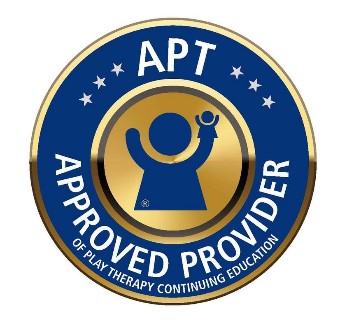Using Improv in Play Therapy
Learn improvisational tools for jumping in and making the moment therapeutic.
Description
How do you react in the playroom when a child client grabs a sword and says, "I'm the knight and you are the dragon”? Or puts on a cat mask, picks up the cash register, and yells, "You can't stop me! I'm the famous Cat Burglar!" Do you turn into a deer in the headlights or meet the child in the play or think, “I can’t do this today”? (Don’t worry. We’ve all thought that at some point.) In this workshop, you will learn improvisational tools for jumping in and making the moment therapeutic. Improv can be a valuable tool for play therapists, helping them work with their clients to increase intuitional thinking, playfulness, awareness of emotions, relaxation, presence, and willingness to take appropriate interpersonal risks, through the use of improv exercises during sessions. It can also be used to facilitate role-play practice of new patterns of thinking, feeling, and behaving during play therapy sessions. Improv can also enhance clients’ social competence, empathy development, self-regulation, self-expression, stress management skills, creative problem-solving, and self-esteem.
 6 Contact CE hours (Includes 6 CE hours on play therapy skills and methods)
6 Contact CE hours (Includes 6 CE hours on play therapy skills and methods)
APT Approved Provider 99-055
 League of Extraordinary Adlerian Play Therapists (LEAPT) has been approved by NBCC as an Approved Continuing Education Provider, ACEP No. 7402. Programs that do not qualify for NBCC credit are clearly identified. League of Extraordinary Adlerian Play Therapists (LEAPT) is solely responsible for all aspects of the programs.
League of Extraordinary Adlerian Play Therapists (LEAPT) has been approved by NBCC as an Approved Continuing Education Provider, ACEP No. 7402. Programs that do not qualify for NBCC credit are clearly identified. League of Extraordinary Adlerian Play Therapists (LEAPT) is solely responsible for all aspects of the programs.
Agenda
8:30 AM Breakfast
9:00 AM Start
10:30 AM Break 1 (15 mins)
12:30-1:30 PM Lunch
1:30 PM Resume Class
3:00 PM Break 2 (15 mins)
3:15 PM Resume class
4:30 PM End
Objectives
At the end of this workshop, participants will be able to…
- Describe 2 improv games they can use to build relationships with play therapy clients.
- Describe 2 improv games they can use to explore play therapy clients’ lifestyles.
- Describe 2 improv games they can use to help play therapy clients gain insight.
- Describe 2 improv games they can use to facilitate play therapy clients make changes in their patterns of thinking, feeling, and behaving.
- Explain why “use of self” is important in play therapy.
- Demonstrate the “yes…and…” technique with play therapy clients.
- List 3 rules of improv that they can apply in their play therapy sessions.